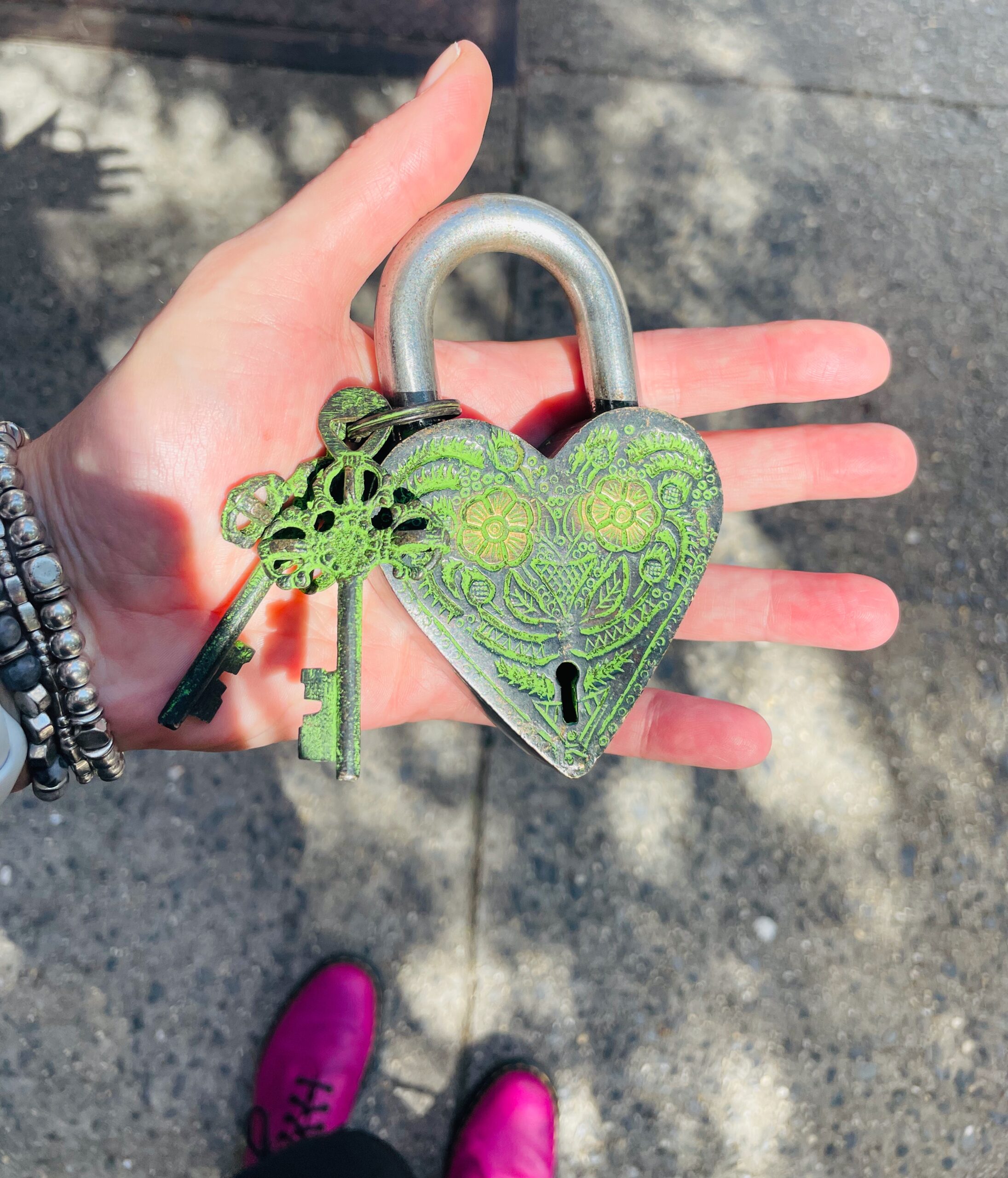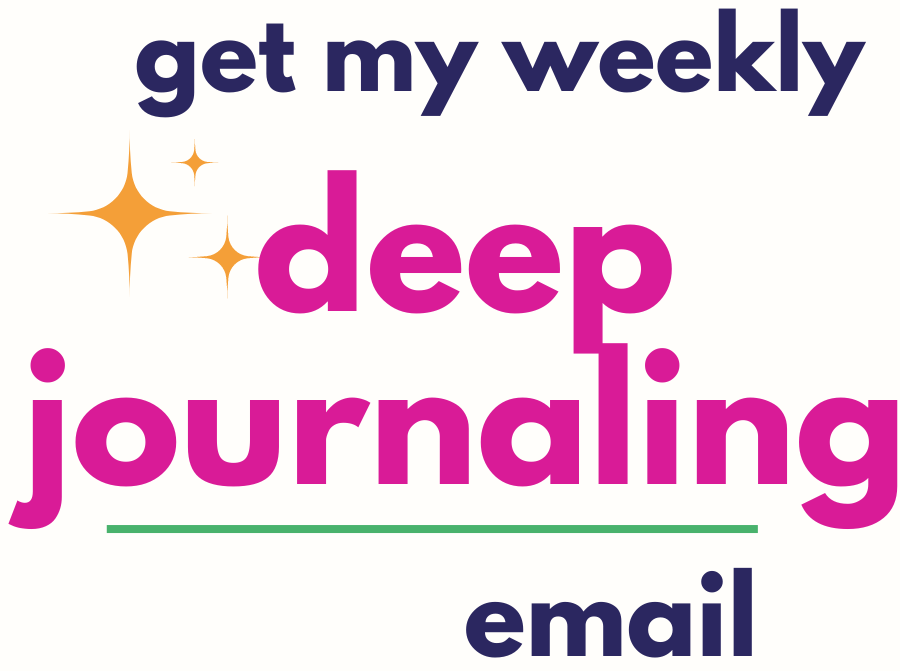Privacy is often a central concern for journal writers, especially when you’re first starting out. If you are concerned about someone reading your journal entries against your will, it’s essential that you find a solution to this problem right away.
The need for privacy is one reason people turn to electronic journaling, which enables you to secure entries with a password and “hide” files. This is a perfectly acceptable solution.
However, as I detail in another post, writing by hand in a paper-based journal can be enormously beneficial. See if any of these privacy methods help you feel safe enough to try giving handwritten journaling a shot.
Journaling should create a safe place for you to honestly examine your feelings, coax out long-buried dreams, purge shame, try on new ideas, and heal your most vulnerable parts. These activities are mutually exclusive with self-editing and censorship.
If you’re editing yourself in your journal, holding back the truth, or writing a certain way because you’re afraid of being found out, you’re wasting your time and denying yourself the chance for genuine growth.
Trust as a Gauge of Growth
Your present level of personal development influences your perception of privacy. Since I’ve been consciously choosing my relationships for some time, I surround myself with people I trust implicitly. My past work in personal growth focused on the removal of untrustworthy or negative relationships. This means I never worry about where my journal is.
The people with whom I share my life would not intrude on my journal because I’ve asked them not to. They know that if I had a problem involving them, I would openly share it with them. They trust my judgment and my actions, so they don’t feel the need to dig in my private spaces hoping to unearth information that confirms their suspicions.
This was a long path, however, and did not happen overnight. There were certainly times in my life when I was sharing space with someone I didn’t trust. Sometimes I didn’t identify an unhealthy relationship until I was embroiled in it. My journal served as a refuge to vent my resentments and solidify an exit plan.
I wasn’t ready to share these plans and epiphanies with my then-partner, nor did I trust him to honor my boundaries. He was likely to snatch the journal from my hands and lock himself in the bathroom, reading it cover to cover so he could confront me with evidence of my emotional infidelity. So I stashed my journal in the bag I always carried.
Being sure my writing was safe enabled me to freely air my frustrations and think strategically. Journal writing gave me the tools to end a bad relationship and to start a new life for myself. As a result, I have not felt the need to protect my journals for the past decade.
Protect Yourself First
Perhaps you find yourself in a tough situation that demands strict privacy, like an abusive relationship you are working toward ending. A journal can be an invaluable tool for support and venting. But in an inflammatory situation, putting it in writing could backfire on you.
If any of your entries might endanger you or escalate an unstable situation, a digital journal with a strong password may be the safest solution for now. Protect yourself and trust your own judgment.
1. Out of sight, out of mind
My default response as an adult has been to keep my current journal tucked away in my bag. Most of the time, keeping your journal out of visual reach prevents roaming eyes. I consider this my “keep the honest people out” method, like locking car doors.
I believe in setting people up for success. No matter how much they love you, your friends and family may be tempted to snoop if you make it easy for them. It’s human nature. Help them honor your trust by putting your journal away.
2. Code words and analogies
In the past, I used code words and analogies that would be meaningless to anyone else: “Despite my best intentions, I went shopping at Target again today. I simply don’t know which sheets to choose. Do I go with the comfortable, traditional flannel? Or do I gamble on the racy satin sheets, exciting but impractical long-term? ” You get the idea.
Once safely out of a situation that required writing in code – for example, moving out of my parents’ house – I found it helpful to revisit these entries, adding notation with a little “key” in case I forgot what the heck I was going on about sheets for when I obviously had more urgent concerns. A small note in the margin provides clarity later. And a giggle, in retrospect. “Sheets. Seriously?”
Maybe you shared a secret language with someone when you were young, like I did. My best friend and I would talk in full cipher over the phone since privacy was a rare commodity.
My mother did likewise with her sister, with whom she’s very close. They share a strange language akin to pig latin. I’m unsure of the origin, but nobody else on earth can understand a word they’re saying. Growing up in a small, overcrowded house with no privacy, it was essential for them to create a verbal barrier.
You may feel the need for similar protection in your journal. Do whatever you need to do to feel safe and protected so you can write without hesitation or self-censorship.
3. Locks
Obviously, you can go the Fort Knox route with a locking file cabinet or bookcase. But if you’re in a volatile situation, it might not be wise to flaunt this fact. Stick with generalizations. “Oh, yes – I just lock up all my important documents – you never know when someone might break in.”
If you want to go the teen angst route, there’s always the locking journal with tiny heart-shaped padlock. Those can be picked with a hairpin, though, so don’t rely on Mead to guarantee your privacy.
4. Warning Labels
A big, fat warning label may provide an additional line of defense; again, keeping the honest people out. “You are about to violate the sacred trust of someone you love. Is whatever petty crap you might find in here worth that?” Just to remind intruders what’s at stake.
When I was younger, I sealed my journals with a hair and invisible tape. Then I put a sticker on the front warning the snooper that the notebook was rigged to betray their intrusion if they opened it, like a silent alarm being activated. Part secret-agent obsession and part melodrama, this method may have at least kept my parents out.
5. Fake Covers
If you want to get creative about protecting your privacy, go “undercover.” My very first journal, which I began in grade school, was a 3-subject notebook with the word “HISTORY” written across the front in bold black Sharpie.
The subject choice was an inside joke with myself – the word “history” certainly accurate. But it was made to look like my boring school notebook, likely filled with yawn-worthy homework assignments and semi-legible notes on the French Revolution. Who would bother snooping in that?
This ruse was doubly useful; my teachers were amazed at how diligently I took notes during class. They assumed my constant, frantic scribbling was intended to capture all the words of brilliance spilling from their mouths. Instead of being reprimanded for writing in my diary during class, my “star student” status was reinforced, granting me further freedom from scrutiny. Little did they know…
I recently saw hardbound notebooks made out of old books – Nancy Drew novels, botany handbooks, philosophy anthologies. My first thought was how great they’d be for journaling, not attracting much attention, “Oh this old thing? Just my stuffy volume of 17th century poetry.”
Perhaps you, too, can hide your journaling beneath the guise of a less intriguing topic.
6. Conversations
When I first began sharing space with my partner, I told him about the journals. I also promised him that if a topic concerned him, I would share it openly with him. He had no need to go looking for it.
I said, “I’m not hiding these anywhere but they are private. And I cannot be responsible for what happens if you decide to read them. So don’t come crying to me about something you find in there that wasn’t meant for your eyes.”
The danger lies mainly in a tool I use called “Alternate Realities.” If I’m having trouble choosing between two options, I write as though I’ve made a decision. This exercise helps me imagine how I’d feel if I were to take a certain action.
For example, if I hate my job, I pretend I’ve decided to quit. Then I write from that perspective. If my journaling focuses on panic over paying the bills, I know I’m not ready to leave my job yet. If I write about the sudden surge of intoxicating freedom and relief, I might be headed in the right direction.
But imagine the grief this could cause if, for example, my partner happened upon an alternate reality exercise without understanding it as such. That’s what I mean about not being responsible for someone’s feelings if they decide to read journals not meant for their eyes. They have no context for the words on that page. They don’t know if they’re reading fact or fiction, the details of a terrible nightmare, a new idea for a novel, or you playing devil’s advocate in your notebook.
Friends, family and housemates need to honor your privacy – for their own good.
7. Boredom
As a last line of defense, most of what I write would bore a snooper to tears in minutes. The juicy stuff is few and far between – that’s the nature of my daily journaling. Anyone who decides to violate my trust will likely be disappointed when they discover it wasn’t worth the bother.
In the end, your privacy concerns can throw a light on potential trust issues. Do you really want to share your life with someone you cannot trust to honor your boundaries? If that light has already been thrown and you’re doing best to get out of a low-trust situation, some of these tools may come in handy.
You need to assess your own situation and protect yourself accordingly. It’s essential to secure your journal so you feel 100% safe and uninhibited in your writing. You deserve to get the most out of your time on the page.




